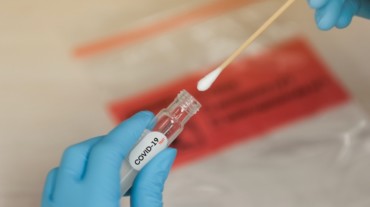
There are certain authorities we trust blindly when it comes to health and wellness information. The American Centers for Disease Control and Prevention (CDC) is one of them. Recently, however, the CDC tweaked its coronavirus testing guidelines, creating a furore.
You see, in a bid to weed out asymptomatic population from testing, an amendment in their guidelines suggests that people who have been in close contact (within 6 feet, for 15 minutes or more) with an infected individual, “do not necessarily need a test” if they are asymptomatic.
It seems the CDC has completely changed its tune
It seems to be awfully contrasting with CDC’s earlier iterations saying “testing is recommended for all close contacts” of the coronavirus infected people, regardless of symptoms.
At a time when experts all around the world are encouraging more frequent and widespread test considering the fact that, essentially to reach the marginalized sections of the population—CDC’s this move seems like a mistake; considering the fact that only a few weeks ago, the National Institutes of Health announced the first round of grant recipients for its Rapid Acceleration of Diagnostics program, or RADx, to scale up coronavirus testing in the coming weeks and months.

Asymptomatic people can do a whole lot of damage if not tested
Studies suggest that about half of transmission events can be traced back to an individual even in the pre-symptomatic stage, if they show symptoms at all. Even CDC earlier, has specifically emphasized on the potential for asymptomatic and pre-symptomatic transmission as a contributing factor for the spread. But this new approach to testing will only delay the crucial treatments and cause even more spread of the virus.
Tracking asymptomatic cases is very crucial, they could be spreading the virus around even without realizing it. And even from an infected individual’s point of view, it is important for them to know whether or not they have coronavirus, since we’ve been living with the pandemic for most of the year and still haven’t discovered the full extent of the long-term consequences of contracting the coronavirus.

However, there’s another catch
Testing, if poorly timed and conducted infrequently, could show false positive or false negative results. Healthy people could be mistaken as infected, or vice versa making early testing after being exposed to the coronavirus a potential risk. But even in such a case, the best procedure would be for such individuals to quarantine for the specified number of days and then get tested.
With an increasing investment in favour of expanding the testing capacity, the reasons behind this rather unsolicited shift in testing recommendations remain unclear
Select Topics of your interest and let us customize your feed.
PERSONALISE NOW